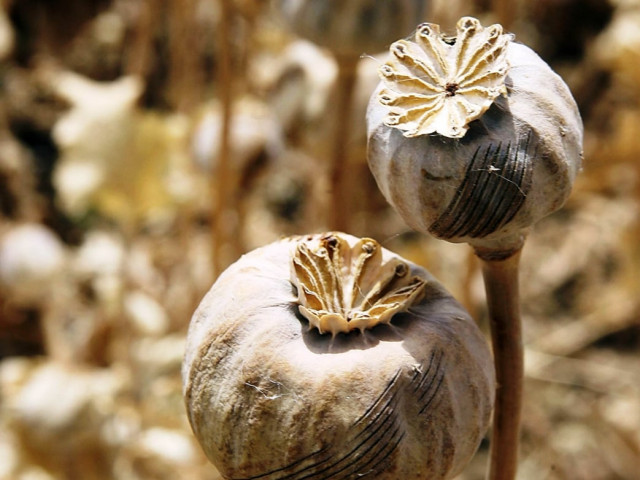Africa reemerging as heroin trafficking hub: UN
Traffickers are exploiting poorly-staffed seaports and airports.

The UN's Office on Drugs and Crime (UNODC) said Africa's emergence as an important heroin transport route in 2009 was of serious concern in a region ill-equipped to fight trafficking or care for people addicted to drugs.
"Drug seizures and the arrest of traffickers indicated that African drug traffickers, particularly West African networks, are increasingly transporting Afghan heroin from Pakistan into East Africa for onward shipment to Europe and elsewhere," it said in a global report on the Afghan opium trade.
Afghanistan is the world's biggest producer of opium, the base ingredient of heroin, and over 40 percent of this flowed into Pakistan in 2009 before being transported worldwide as part of the $68 billion global opiate market.
(Read: Global Afghan Opium Trade: A Threat Assessment)
Released late on Friday, the report said there were two major heroin seizures during the first quarter of 2011, each of more than 100 kg, reported by Kenya and Tanzania.
"The emergence of Africa as a heroin trafficking hub is almost certainly due to ongoing corruption, widespread poverty and limited law enforcement capacity, as well as increased pressure on traditional drug trafficking routes," it said.
This provided an incentive to reopen the African route to Europe that had been very active in the 1980s and early 1990s.
Traffickers are exploiting poorly-staffed seaports and airports and the lower cost and ease of transporting drugs through Africa makes the extra distance worthwhile.
In 2009, an estimated 150 tonnes of Afghan heroin reached Europe, 120 tonnes arrived in Asia and 45 tonnes came to Africa, the UNODC said.
Organised crime groups are the main beneficiaries of this trade, the report said. It estimated that Afghan drug traffickers earned $2.2 billion in 2009, the Taliban around $155 million and Afghan farmers $440 million.
The increasing amounts of heroin reaching Africa appear to be fuelling drug use, with authorities reporting more cases.
"However, drug abuse estimates are likely to be unrealistically low due to a lack of comprehensive data," the report said.




1725099588-0/BeFunky-(41)1725099588-0-208x130.webp)














COMMENTS
Comments are moderated and generally will be posted if they are on-topic and not abusive.
For more information, please see our Comments FAQ